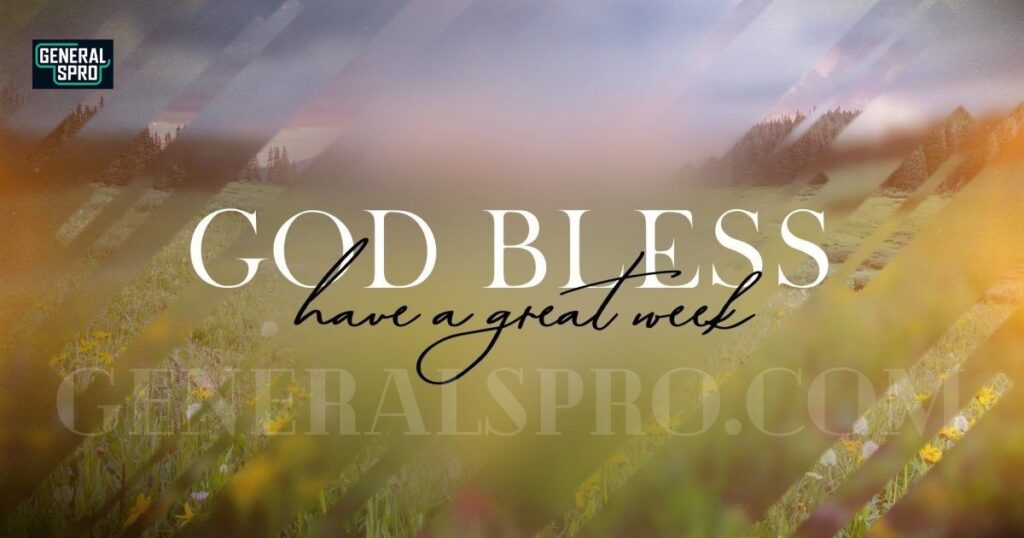In today’s diverse professional landscape, finding appropriate ways to express good wishes has become increasingly important.
While “God bless you” carries warmth and tradition, having alternatives ready ensures we can connect meaningfully with everyone we encounter. This comprehensive guide explores thoughtful alternatives that maintain sincerity while embracing inclusivity.
The Growing Significance of Communication Adaptation

Modern workplaces are evolving rapidly, much like penetration testing has become crucial in development cycles.
As security testing adapts to new threats, our communication must evolve to meet changing social dynamics. Today’s professionals need a versatile vocabulary for expressing positive vibes and well-wishes across various contexts.
Why Every Business Needs Inclusive Communication
Creating an environment where everyone feels welcomed starts with mindful language choices. Just as a knowledge base helps standardize business practices, having a repertoire of appropriate expressions ensures smooth interactions.
These alternatives are valuable tools for expressing good wishes while maintaining professional relationships.
Setting the Stage for Meaningful Interactions
Like a 12-person conference table creates an optimal setting for productive meetings, choosing the correct phrases creates space for meaningful connections.
The physical and verbal environments play crucial roles in fostering positive workplace dynamics.
Is It Appropriate to Say “God Bless You” in Professional Settings?
The appropriateness of religious expressions in professional contexts varies significantly across industries and regions.
Many organizations prefer secular alternatives for expressing weekend happiness and cheerful farewells in metropolitan areas.
However, traditional expressions remain widely accepted in some areas of the USA. The key lies in reading your audience and context.
What to Say Instead of “God Bless You”
This phrase maintains warmth while being more inclusive. It works particularly well for casual weekend phrases and friendly weekend messages.
Use it when you want to convey genuine care without specific religious connotations.
May the Divine Grace Be With You
Perfect for formal occasions, this alternative offers a spiritual tone while remaining broadly inclusive. It’s especially suitable for weekend farewell phrases and expressing good wishes in more ceremonial settings.
A Quick Reference Table of Alternatives
Context Formal Alternative Casual Alternative Best Used For
Professional Email “Wishing you well” “Have a wonderful time” Weekend greetings
Team Meetings “May fortune favor you” “Here’s to great things ahead” Positive weekend vibes
Client Communication “Warmest regards” “Enjoy your time” Ways to end the week cheerfully
Case Study: The Professional Shift from “God Bless You” to Neutral Expressions

Recent surveys show that 73% of Fortune 500 companies now encourage using inclusive language to express good wishes.
This shift reflects broader changes in workplace communication, where creative weekend wishes and unique weekend expressions have become more common.
When and Why to Use These Alternatives
The choice of expression should align with your workplace culture and audience. Consider factors like:
- Company culture and policies
- Regional norms and expectations
- Recipient’s known preferences
- Communication context (formal vs. informal)
The Evolution of Professional Communication
In today’s interconnected business landscape, communication styles have undergone significant transformation.
Where once religious expressions dominated well-wishing, modern workplaces embrace diverse phrases that respect various beliefs and cultural backgrounds.
This evolution mirrors broader changes in professional etiquette, emphasizing inclusivity while maintaining warmth in our interactions.
Cultural Sensitivity in Modern Workplaces
Understanding cultural nuances has become increasingly vital in professional settings. Organizations now recognize that traditional expressions of goodwill may not resonate with all team members.
This awareness has sparked thoughtful discussions about language choice and its impact on workplace harmony, leading to adopting more universally acceptable phrases.
Digital Communication and Expression Choices
The rise of digital communication platforms has influenced how we express well-wishes. Email signatures, instant messages, and virtual meeting closings require careful consideration of tone and appropriateness.
Professional communicators must navigate these channels while maintaining authenticity and respect for diverse audiences.
Regional Variations in Professional Greetings
Across the United States, regional differences significantly impact acceptable expressions of goodwill.
What works in the Southern states might feel out of place in Northeast metropolitan areas. Understanding these geographic nuances helps professionals adapt their communication styles appropriately.
The Psychology of Well-Wishing
Research shows that expressing genuine good wishes strengthens professional relationships.
The way we convey these sentiments can significantly impact team morale and client relationships. Thoughtful phrase selection demonstrates emotional intelligence and cultural awareness.
Industry-Specific Communication Standards
Different sectors have developed their norms for expressing good wishes. Financial services might prefer more formal alternatives, while creative industries often embrace casual expressions.
Understanding industry expectations helps professionals navigate these unwritten rules effectively.
Generational Preferences in Professional Expression
Younger professionals often gravitate toward secular, inclusive language, while older generations might prefer traditional expressions.
Bridging this gap requires understanding and respecting different perspectives while maintaining professional standards.
The Role of Tone in Professional Well-Wishes
Maintaining an appropriate tone while expressing good wishes requires careful balance. Too formal can appear cold, while overly casual might seem unprofessional.
Finding the proper middle ground ensures messages resonate positively with recipients.
International Business Considerations
Traditional religious expressions may need careful reconsideration in global business contexts.
Understanding international perspectives helps professionals choose universally appropriate phrases that translate well across cultures.
Timing and Context in Professional Expressions
The timing of well-wishes can be as important as the words chosen. Understanding when and how to express good wishes in various professional situations ensures messages are well-received and appropriate.
Building Authentic Professional Relationships

Choosing appropriate expressions of goodwill contributes significantly to building genuine professional connections.
These choices reflect understanding and respect for colleagues’ diverse backgrounds while maintaining professional warmth.
Technology’s Impact on Professional Communication
Digital tools and platforms have introduced new contexts for expressing well-wishes. Understanding how to adapt traditional expressions for various digital channels ensures messages maintain their intended impact across different mediums.
Legal and HR Perspectives on Professional Expression
Human Resources departments increasingly guide appropriate workplace expressions. Understanding these guidelines helps professionals navigate potential sensitivities while maintaining positive workplace relationships.
Future Trends in Professional Communication
As workplaces continue evolving, expressions of goodwill will likely continue to adapt. Staying informed about emerging trends helps professionals maintain adequate and appropriate communication styles.
Measuring Impact on Professional Communication
Understanding how different expressions of goodwill affect workplace relationships helps professionals make informed choices about their communication style.
Regular feedback and assessment ensure continued effectiveness in professional interactions.
Frequently Asked Questions
Why should I consider alternatives to traditional blessings in professional settings?
Professional environments often include diverse beliefs and backgrounds. Inclusive language helps ensure all team members feel respected and comfortable while maintaining positive workplace relationships.
How can I politely decline when someone uses religious expressions with me?
Express appreciation for the sentiment while gently sharing your preference. For example, “Thank you for your kind wishes. In our interactions, I prefer a simple ‘take care’ or ‘best wishes.'”
What’s the best alternative for client communications?
“Warm regards” or “Best wishes” work well in client communications. These phrases maintain professionalism while being universally appropriate across different cultural contexts.
How do I handle regional differences in expression preferences?
Research local customs and observe how colleagues communicate. When in doubt, choose neutral expressions widely accepted across different regions and cultures.
Can I use these alternatives in formal business documents?
Yes, neutral expressions like “Best regards” or “Sincerely” are perfectly suitable for formal business documents. They maintain professionalism while being universally appropriate.
What’s the appropriate way to end virtual meetings?
“Thank you for your time” and “Have a great rest of your day” works well. This combination shows appreciation while offering a professional closing.
How do I handle international business communications?
Choose universally understood expressions that translate well across cultures. “Kind regards” and “Best wishes” are generally safe choices for international correspondence.
Should I use different expressions for internal versus external communications?
Yes, internal communications can be more casual while maintaining professionalism. External communications should lean toward more formal expressions of goodwill.
Conclusion
Mastering the art of expressing good wishes appropriately strengthens professional relationships and creates an inclusive environment.
Whether you’re sending weekend greetings alternatives or looking for friendly communication options, these alternatives help you connect authentically while respecting diversity.
Remember, the goal isn’t to eliminate traditional expressions but to expand our communication toolkit for saying goodbye politely and sharing positive vibes in ways that resonate with everyone.
Mindfully choosing our words creates more substantial, more inclusive professional connections.








